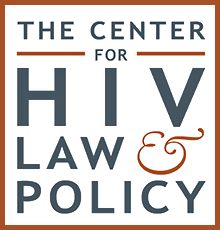Overview
There are no HIV-specific offences criminalising HIV non-disclosure, perceived ‘exposure’, transmission, or other conduct in Wisconsin. However, prosecutions for perceived HIV ‘exposure’ have also occurred under general criminal laws and people living with HIV can be subject to aggravated sentences if convicted for certain general criminal offences.
We are aware of several prosecutions of people living with HIV for perceived ‘exposure’ under the general criminal provision of ‘reckless endangerment’. One case involved a charge of first-degree reckless endangerment, which requires proof of an ‘utter disregard for human life’ and is a class F felony, punishable with up to 12.5 years’ imprisonment and a fine. The case involved a man convicted in 2008 of six counts of first-degree reckless endangerment for having unprotected sex while HIV-positive. He had previously been convicted of similar offences in 2003, and it appears he was charged with further offences in 2019. It is more common for perceived sexual ‘exposure’ to be charged under second-degree reckless endangerment, which is a class G felony punishable with up to ten years’ imprisonment and a fine, such as in a 2008 case in which charges were eventually dropped for lack of evidence, and a 2019 case where the outcome is not known.
Perceived ‘exposure’ to HIV through non-sexual acts which carry little to no risk of transmission have also been prosecuted under general laws. In 2015, a man living with HIV and hepatitis was charged with second-degree reckless endangerment after he allegedly spat on the face of two security officials. The outcome of this case is not known.
In at least one other case a sex worker was given an enhanced sentence for a ‘prostitution’ offence due to a perceived high risk of HIV transmission despite the fact that she was not living with HIV (see CLHP report below).
The criminal procedure law of Wisconsin also states that where certain ‘serious sex crimes’, which includes sexual assault and child sexual assault offences, are committed by people living with HIV or other STIs, the court should take this fact into consideration when making sentencing decisions. This opens the door to enhanced sentences for people living with HIV as compared with the general population. In order for this provision to apply, the convicted person must be living with HIV or have a positive HIV test, be aware of this fact, and engage in conduct which ‘significantly exposes’ the victim through contact with bodily fluids. Intent and transmission are not required for this offence.
In addition to these criminal penalties, people living with HIV can be subject to compulsory examination, treatment, and observation under state health laws on STI control. Failure to comply can result in forced commitment to a health facility. Healthcare providers are also required to report communicable diseases to health officials, who can impose instructions on those reported to be living with the communicable disease which includes ceasing certain conduct or employment considered a ‘threat’ to others. Failure to comply can result in imprisonment for up to 30 days and fine.
For a detailed analysis of HIV criminalisation in Wisconsin, as well as all other US states, see the Center for HIV Law and Policy report, HIV Criminalisation in the United States: a Sourcebook on State and Federal HIV Criminal Law and Practice.
Laws
Wisconsin Statutes § 973.017
Bifurcated sentences; use of guidelines; consideration of aggravating and mitigating factors
(4) Aggravating factors; serious sex crimes committed while infected with certain diseases.
(a) In this subsection:
- “HIV” means any strain of human immunodeficiency virus, which causes acquired immunodeficiency syndrome.
1m. “HIV test” has the meaning given in s. 252.01 (2m).
- “Serious sex crime” means a violation of s. 940.225 (1) or (2), 948.02 (1) or (2), 948.025, 948.085.
- “Sexually transmitted disease” means syphilis, gonorrhea, hepatitis B, hepatitis C, or chlamydia.
- “Significantly exposed” means sustaining a contact that carries a potential for transmission of a sexually transmitted disease or HIV by one or more of the following:
- Transmission, into a body orifice or onto mucous membrane, of blood; semen; vaginal secretions; cerebrospinal, synovial, pleural, peritoneal, pericardial, or amniotic fluid; or other body fluid that is visibly contaminated with blood.
(…)
(b) When making a sentencing decision concerning a person convicted of a serious sex crime, the court shall consider as an aggravating factor the fact that the serious sex crime was committed under all of the following circumstances:
- At the time that he or she committed the serious sex crime, the person convicted of committing the serious sex crime had a sexually transmitted disease or acquired immunodeficiency syndrome or had had a positive HIV test.
- At the time that he or she committed the serious sex crime, the person convicted of committing the serious sex crime knew that he or she had a sexually transmitted disease or acquired immunodeficiency syndrome or that he or she had had a positive HIV test.
- The victim of the serious sex crime was significantly exposed to HIV or to the sexually transmitted disease, whichever is applicable, by the acts constituting the serious sex crime.
Wisconsin Statutes § 941.30
Recklessly endangering safety
(1) First-degree recklessly endangering safety. Whoever recklessly endangers another’s safety under circumstances which show utter disregard for human life is guilty of a Class F felony.
(2) Second-degree recklessly endangering safety. Whoever recklessly endangers another’s safety is guilty of a Class G felony.
Further resources
Not all laws used to prosecute people living with HIV in this state are included on this page. For a comprehensive overview and analysis of HIV-related criminal and similar laws and policies, visit The Center for HIV Law and Policy



